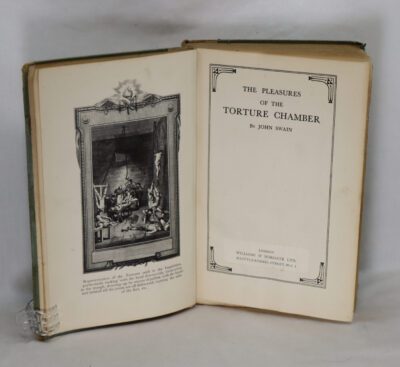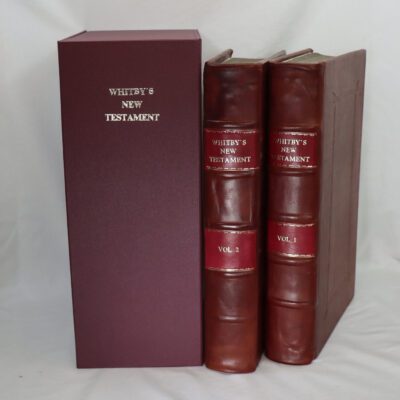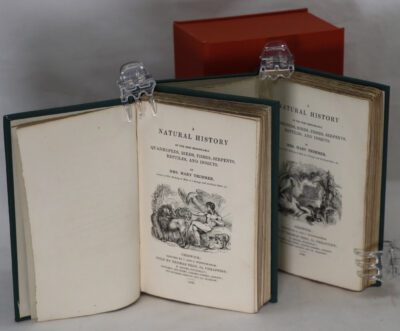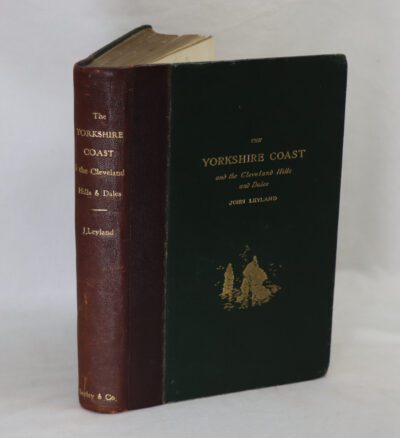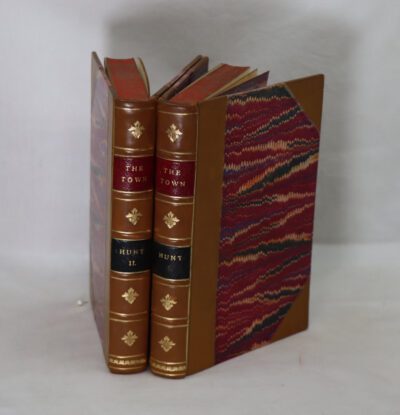The Poetical Works of Will Congreve. 1778 -1781.
By Will Congrieve
Printed: 1778-1781
Publisher: The Martins. Edinburgh
| Dimensions | 9 × 14 × 4 cm |
|---|---|
| Language |
Language: English
Size (cminches): 9 x 14 x 4
Condition: Fine (See explanation of ratings)
FREE shipping
Item information
Description
Tan calf spine with tan marbled boards. Red title plates with gilt lettering and banding on the spine.
Offered is a clever one-off rebinding of the works of William Congreve along with Bell’s edition of ‘The poets of Great Britain complete from Chaucer to Churchill’.
William Congreve (24 January 1670 – 19 January 1729) was an English playwright and poet of the Restoration period. He is known for his clever, satirical dialogue and influence on the comedy of manners style of that period. He was also a minor political figure in the British Whig Party. William Congreve shaped the English comedy of manners through his use of satire and well-written dialogue. Congreve achieved fame in 1693 when he wrote some of the most popular English plays of the Restoration period. This period was distinguished by the fact that female roles were beginning to be played predominantly by women and was evident in Congreve’s work. One of Congreve’s favourite actresses was Mrs. Anne Bracegirdle, who performed many of the female lead roles in his plays.
His first play The Old Bachelor, written to amuse himself while convalescing, was produced at the Theatre Royal, Drury Lane in 1693. It was recognized as a success, and ran for a two-week period when it opened. Congreve’s mentor John Dryden gave the production rave reviews and proclaimed it to be a brilliant first piece. The second play to be produced was called The Double-Dealer which was not nearly as successful as the first production. By the age of 30, he had written four comedies, including Love for Love (premiered 30 April 1695) staged at the Lincoln’s Inn Theatre, which was nearly as well-received as his first major success, and The Way of the World (premiered March 1700). This play was a failure at the time of production but is seen as one of his masterpieces today and is still revived. He wrote one tragedy, The Mourning Bride (1697) which was extremely popular at the time of creation but is now one of his least regarded dramas. After the production of Love for Love, Congreve became one of the managers for the Lincoln’s Inn Fields in 1695. During that time, he wrote public occasional verse. As a result of his success and literary merit, he was awarded one of the five positions of commissioner for licensing hackney coaches.
Congreve’s career as a playwright was successful but brief. He only wrote five plays, authored from 1693 to 1700, in total. This was partly in response to changes in taste, as the public turned away from the sort of high-brow sexual comedy of manners in which he specialized. Congreve may have been forced off the stage due to growing concerns about the morality of his theatrical comedies. He reportedly was particularly stung by a critique written by Jeremy Collier (A Short View of the Immorality and Profaneness of the English Stage), to the point that he wrote a long reply, “Amendments of Mr. Collier’s False and Imperfect Citations.” Although no longer on the stage, Congreve continued his literary art. He wrote the librettos for two operas that were being created at the time, and he translated the works of Molière.
As a member of the Whig Kit-Kat Club, Congreve’s career shifted to the political sector, and even a political appointment in Jamaica in 1714 by George I. Congreve continued to write, although his style changed greatly. During his time in Jamaica, he wrote poetry instead of full-length dramatic productions and translated the works of Homer, Juvenal, Ovid, and Horace.
John Bell (1745–1831) was an English publisher. Originally a bookseller and printer, he also innovated in typography, being responsible for an influential font that omitted the long s. He was also noted for drawing the reading public to “the best literature” by commissioning attractive artwork to accompany the printed work. From 1769, Bell owned a bookshop in the Strand, London, the “British Library”. His 109-volume, literature-for-the-masses The Poets of Great Britain Complete from Chaucer to Churchill, which rivalled Samuel Johnson’s Lives of the Most Eminent English Poets (1781), was published from 1777 to 1783. Each volume cost just six shillings, much less than what was commonly charged.
Bell’s joint-stock organisation of his publishing company defied “the trade” — forty dominant publishing companies — to establish a monopoly on top publications. In addition to the extensive Poets of Great Britain, he published book sets on Shakespeare and The British Theatre. The drawings and illustrations in these works influenced later publishers. He also ran a circulating library. In 1788-1789, he operated a type foundry called the British Letter Foundry in collaboration with punchcutter Richard Austin. Revivals of these typefaces have been made under the name of Bell and Austin.
Bell died in Fulham in 1831, summed up by publisher Charles Knight as a “mischievous spirit, the very Puck of booksellers.” He was the uncle of the engraver Edward Bell.
Want to know more about this item?

Related products
Share this Page with a friend






